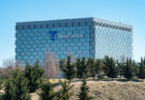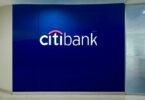Today Oracle announced a batch of new functionality for its Oracle Blockchain Platform and shared information about thirteen companies currently using the network in production.
One client is CargoSmart, the technology provider behind the Global Shipping Business Network (GSBN) which aims to enable the digital transformation of the global shipping industry. Consortium members include five of the world’s top ten shipping carriers: CMA CGM, COSCO SHIPPING Lines, Evergreen Marine, OOCL, and Yang Ming. The five companies have a combined market share of 30.3% compared to IBM and Maersk’s TradeLens where carriers account for 22.8% of the world’s shipping.
Another Oracle client is startup Circulor which created the first blockchain traceability platform in Rwanda for conflict minerals such as tantalum which is used in consumer electronics. The Circulor network includes mining company PRG Resources which supplies Apple, as well as a refiner and the Rwandan government.
“Oracle’s blockchain solution delivers enterprise performance, security and scalability right out-of-the-box,” said Johnson-Poensgen. “We started with the Oracle Blockchain Platform four months ago and were able to go from zero to a production system spanning multiple organizations involved in ethical sourcing of minerals within a matter of months. Another key advantage is that we were able to integrate Oracle’s blockchain platform into a hybrid blockchain network spanning multiple clouds and easily integrate with our existing systems and applications.”
Other Oracle Blockchain clients include Arab Jordan Investment Bank, China Distance Education Holdings Limited (CDEL), Certified Origins, HealthSync, ICS Financial Systems, NeuroSoft, Nigeria Customs, OriginTrail, SERES, SDK.Finance and TradeFin.
New features
Oracle introduced a swathe of new features to add a layer of tools on top of Hyperledger Fabric 1.3. Many of the features enhance developer productivity and make it easier to administer and integrate the network with existing systems.
Transactions that are stored on the blockchain and which a company has permission to access can be shadowed in an Oracle database to support database queries, reports and analytics. The blockchain platform now supports identity federation which enables consortium members to use their existing identity management systems. And there are several new APIs to simplify integration.
When Oracle first unveiled its blockchain service in July, there were plans to support other blockchain protocols, but as yet there’s no word of that.







